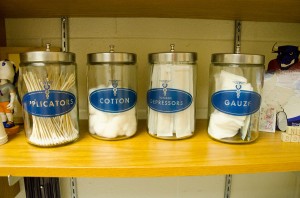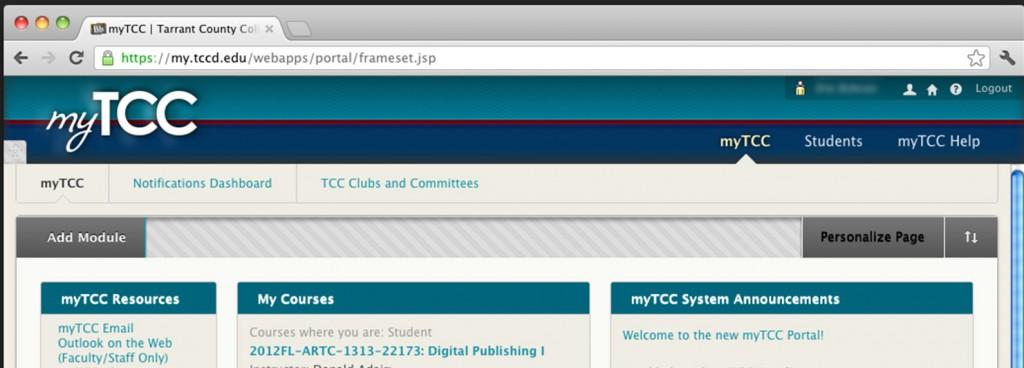By Kelli Henderson/ entertainment editor
College students do not have time for extra burdens such as staying home sick, but, unfortunately, they are prone to some illnesses more than other age groups.
Some would think a contagious virus or bacteria define an illness, but the most common illnesses college students can receive are both mental and physical.

Photo by: David Reid/The Collegian
According to UScollegesearch.org, 40 million Americans deal with anxiety disorders, 6.8 million have generalized anxiety disorder and three times as many adults take antidepressants today than 10 years ago.
Someone with depression can be described as feeling sad or down in the dumps. Ncbi.gov said clinical depression is a mood disorder with feelings of anger or frustration, sadness and loss that interfere with everyday life for long periods of time.
Anxiety disorder can be described as frequent worry over different events. It can cause feelings of fear or concern. It is normally a reaction to stress.
“A lot of times, what happens is students get real stressed out around registration or exam times, which of course, when you get stressed, you sleep less, which weakens your immune system, which is why they get sick in the first place,” Carey Miller, a NE academic advisor, said.
Both Susan Cramer, a nurse on NE since 2004, and Elizabeth Lowry, a SE nurse, said that stress, anxiety and depression seem to be increasing among students.
Cramer said the majority of the calls she has made around campus for students involved someone experiencing an anxiety attack.
“It’s not that stress is running rampant. It’s just that people are not being told how to deal with it, and what to do about it, how to manage it,” she said.
“I have my own theory about [this] … I think most of it is people haven’t developed the problem-solving skills and coping mechanisms, and I think that’s where we probably fail students more than anything.”
South and NE student Nikita Swindall said she thinks organization is the best solution.
“If someone has anxiety, I would say that that’s mostly due to them not being able to handle the workload that they have, which probably means they have issues with controlling their time and being able to plan out their workload so they don’t feel super-stressed,” Swindall said.
Many illnesses get a bad rap. Though being sick is not fun, many students can get well-known illnesses from unexpected things. Door knobs can be just as dangerous as coughing classmates.
Mononucleosis has the nickname “kissing disease,” but it is actually spread through any close contact, not just kissing. It is a viral infection causing sore throats and swollen lymph nodes. Many people have the virus in their bodies, but it stays dormant.
The Epstein-Barr virus is usually the trigger in mono cases. Many symptoms include drowsiness (the most famous), loss of appetite, fever, muscle aches and a swollen spleen.
The virus affects everyone differently. Some have the virus for a couple weeks or for a couple months. According to monotreatment.com, 90 percent of the U.S. population has been infected with EBV by the age of 25.
“If you think about it, the average person who eats right, has a nice balance between exercise and rest, their immune system has an advantage and they can fight infections,” Cramer said.
“College-aged students, they start feeling bad, but mom is no longer right there where they can just go tell her, so they tend to delay getting treatment, and that’s one of the reasons you see so much of those diseases.”
Miller said students who need to take time from school because of an illness should always follow medical advice or instructions.
“Once you start catching stuff, get the antibiotics,” Miller said. “Make sure you finish them. A lot of students won’t finish the antibiotics. They’ll start feeling better, and they’ll quit taking them, but you actually don’t get rid of all the bacteria infection in your system. So three weeks later, you end up getting sick again, sometimes even a little bit worse.”
NE student Sarda Tapleshay said if someone was to tell her mono was going around, she would try to keep as far away as possible.
“Because you can get really sick from mono, you can be out for, like, a month, and I have work and bills I have to pay and school. I can’t afford to be out of school for that long,” she said.
Sexually transmitted infections and alcohol and drug abuse bring up the rear in some of the most common illnesses for college students. Though STIs can be a big group in itself, collegetimes.us said human papilloma virus, chlamydia and herpes are the top three.
“STIs may be one of the leading common conditions the students may be affected by,” Lucy Harris, a South nurse, said. “We have several resources, agencies that we work with at the campus. We have the public health department where their communicable disease issues are concerned.”
HPV is in the genital warts family although not all HPV causes genital warts. Chlamydia’s common symptoms include a burning sensation when urinating and rectal pain. Herpes appears as blisters on the genitals or rectum.
According to unh.edu and mastersinhealthcare.com, 20-25 percent of students have been carriers or have been infected with STIs at some point in their lives and nearly 2.7 million full-time college students abuse drugs and alcohol at least once a month.
Alcohol and drug abuse is considered a patterned use that may or may not be dependent.
Health services on every campus has a variety of pamphlets and resources students can use if they have questions about STIs or any illness. Each campus also provides free HIV and syphilis testing every semester.
Because TCC is a commuter school and does not have dormitories, students run less of a risk in catching illnesses, but that does not mean students are immune.
TCC health officials suggest students stay home until all symptoms of the sickness are gone.
“Normally, we recommend if you have a fever of 100 degrees or more, you should stay home away from other people until that temperature goes back down to normal without the assistance of Advil, Tylenol or something like that. Same thing with nausea, vomiting, diarrhea,” Cramer said. “We would like you to be free of those symptoms for 24 hours before coming back to school.”
NE student Zach Winfield said students don’t want to get sick, and those who are should respect that.
“If it were me and I were sick, I wouldn’t want anyone to catch anything, so I would stay home. So I think others should as well,” he said.
Students who are ill —whether they are contagious or not — and have to miss class should not worry about the new attendance policy that was put into place, Cramer said. They do need to worry about keeping in touch with their teachers to let them know what is going on.
“Most of the time I have seen teachers who are willing to work with them [students]. As long as they email them, they have the documentation,” Miller said. “As long as you let your teachers know, ‘Hey, I’ve come down with the flu, I have a doctor’s note, I’m going to miss class,’ the instructors are more willing to work with them … The attendance policy is more of a student just quits showing up or they miss three or four classes and the teacher never hears from them, so they’re like, ‘Well, what’s happening?’”
Health services is available on every campus with varying hours open for each.





















